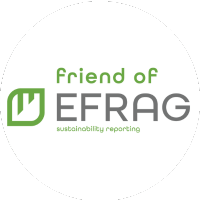
Editor’s Note: Gary Gensler is Chair of the U.S. Securities and Exchange Commission. This post is based on his recent remarks before the Principles for Responsible Investment (PRI) “Climate and Global Financial Markets” Webinar.
- The SEC chief wants the agency to develop a climate-disclosure rule this year.
- He said prior SEC guidelines on climate disclosure were voluntary and resulted in inconsistent disclosures.
- “Companies and investors alike would benefit from clear rules of the road,” he said.
In a speech delivered on July 28, 2021, Gary Gensler, U.S. Securities and Exchange Commission (SEC) Chair, gave certain insights into the SEC’s approach to crafting new rules that would require SEC registrants to disclose information on climate-related risk.
The new rules – a draft of which he expects by year-end – will aim to meet what he described as investors’ request for “consistent, comparable and decision-useful disclosures.”
Chair Gensler indicated that the SEC staff would write its own rules to establish a climate risk disclosure regime for U.S. markets, while learning from external standard-setters.
The climate rulemaking follows an SEC request for public input issued in March 2021 on how the SEC could approach climate-related disclosures. Chair Gensler noted that the SEC received more than 550 unique comment letters in response, three quarters of which supported mandatory climate disclosure rules.
The anticipated rules would be a major change from the SEC’s existing principles-based approach, set out in its 2010 guidance on climate risk disclosure. The 2010 SEC guidance, which remains in effect, articulates a “principles-based” disclosure framework rooted in the concept of materiality.
The 2010 guidance does not mandate disclosure of any specific climate-related metrics and requires companies to disclose information about climate change’s potential or actual impacts on the company to the extent material to investors.
Chair Gensler’s comments suggest that new rules would likely require more specific, prescribed quantitative and qualitative information about climate risk.
A 2019 study from the National Bureau of Economic Research said that climate change’s impact on everything from farming to manufacturing could reduce the U.S. gross domestic product by 10.5 percent by the end of this century.
The nonprofit Sustainability Accounting Standards Board (SASB) has identified climate change as being a material risk factor for 68 out of 77 defined industry sectors.
A 2019 survey of 215 of the world’s 500 largest companies found nearly $1 trillion in reported climate-related financial risk.
The SEC remarked, we have seen that disclosure can have a transformative impact on investment decisions. For example, the French central bank established a requirement for climate disclosures to certain categories of investors in 2016. After four years they found investments in fossil fuel companies declined within those categories by almost 40 percent, or 28 billion euros.
Measurement through disclosure is the first step in transparently sharing investment climate risk. American investors deserve to know the risks they face, and there is no greater systemic risk than climate change.
Read the full discussion: https://corpgov.law.harvard.edu/2021/07/29/remarks-by-chair-gensler-before-the-principles-for-responsible-investment-climate-and-global-financial-markets-webinar/
#climatechange #climaterisk #climateaction #netzero #esgreporting #tcfd #sasb #pri
Next Steps
Contact ESG Playbook One platform. All the tools and frameworks you need for your ESG Reporting.
Follow Us



